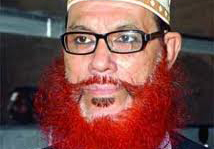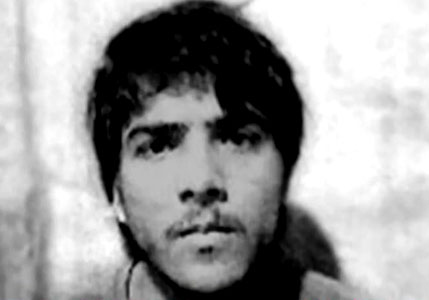
Mar 22, 2013 | News
Indonesia’s resumption of the death penalty after a four-year moratorium is a major setback for the country’s human rights record, the ICJ said today.
Indonesia executed Adami Wilson Bin Adam on 15 March 2013. After the execution, Indonesia’s Attorney General Basrief Arief announced that the government was set to execute nine more convicts this year.
“The Indonesian government should immediately reverse its decision to proceed with more executions in defiance of global trends toward the abolition of the death penalty,” said Emerlynne Gil, ICJ’s International Legal Advisor for Southeast Asia in Bangkok. “At least 150 countries have now either abolished the death penalty or instituted an official or unofficial moratorium. There is a growing understanding around the world that the death penalty is an unacceptable assault on rights and dignity.”
Adami Wilson Bin Adam was convicted in 2004 for smuggling one kilogram of heroin into the country. In Indonesia, the law prescribes the penalty of death for trafficking narcotics.
During its Universal Periodic Review (UPR) in 2012 at the UN Human Rights Council, Indonesia rejected recommendations to abolish the death penalty or establish a moratorium on executions.
In its reply, the Government of Indonesia said that death penalty is imposed “selectively only for serious crimes.” However, the UN Special Rapporteur on extrajudicial, summary or arbitrary executions, in his report, emphasized that “the death penalty should be eliminated for crimes such as economic crimes and drug-related offences.”
Indonesia last carried out executions four years ago. In 2008 it executed three men convicted of the 2002 Bali bombings.
“This execution undermines Indonesia’s repeated efforts to position itself as a regional human rights leader,” Gil added. “Its resumption of executions is indeed a very grave setback not only for Indonesia, but also for the region and ASEAN, the Association of South East Asia Nations.”
The ICJ says that use of the death penalty violates the right to life and the right not to be subjected to cruel, inhuman, or degrading treatment or punishment.
Last November 2012, the UN General Assembly issued a resolution calling on all Member States to establish a moratorium on executions with a view to abolishing the death penalty.
The resolution was adopted by an overwhelming number of votes from Member States. Indonesia abstained from the vote.
The ICJ calls Indonesia to immediately ratify the 2nd Optional Protocol to the International Covenant on Civil and Political Rights, which obligates State Parties to take all necessary measures to abolish the death penalty.
In the immediate term, the country should implement a moratorium on the practice, the ICJ adds.

Mar 22, 2013 | News
The ICJ, the World Organisation Against Torture (OMCT) and Geneva for Human Rights are encouraged by steps taken by Taiwan to review compliance with human rights and urge further steps towards the realization of rights on the ground.
Due to the fact that the territory of Taiwan is not recognized by the international community as a sovereign State, Taiwan is not a member of the United Nations.
As such, the UN HUman Rights Committee and Committee on Economic, Social and Cultural Rights have been unable to review Taiwan’s implementation of the International Covenant on Civil and Political Rights and the International Covenant on Economic, Social and Cultural Rights, in respect of which Taiwan has enacted incorporating legislation.
Notwithstanding this position, the Government of Taiwan has facilitated a parallel review by independent experts of implementation of these instruments.
This review was conducted on 25-27 February 2013, leading to the adoption by the independent experts of concluding observations and recommendations.
The ICJ, OMCT and Geneva for Human Rights are encouraged by the steps taken.
They urge the Government of Taiwan to undertake prompt and effective steps towards implementation of the recommendations of the independent experts by means that involve a constructive dialogue with civil society, including as this pertains to the abolition of the death penalty.
They also call on the Government to take similar steps for incorporation of human rights standards set out in other universal treaties, including the Convention against Torture.
Taiwan-ICCPR-ICESCR-Conclusions-IndependentExperts-2013 (download concluding observations of the independent experts)

Mar 14, 2013 | Advocacy, Non-legal submissions
The ICJ today called on the Government of Pakistan to reconsider its rejection of UPR recommendations on the death penalty and enforced disappearances.
Expressing deep regret over recent events in Pakistan reversing a de facto moratorium on the imposition of the death penalty in the country, the ICJ called on the Government to accept UPR recommendations to adopt an official moratorium with a view to abolishing the death penalty in law. The ICJ also called on Pakistan to accede to the Second Optional Protocol to the ICCPR and to ratify the International Convention for the Protection of All Persons from Enforced Disappearances.
The statement was made during an Interactive Dialogue on the adoption of the UPR of Pakistan (Item 6 of the Council’s agenda) during the 22nd regular session of the Human Rights Council (25 February to 22 March 2013).
Pakistan-HRC22-Item6-NonLegalSubmission-2013 (download full statement in PDF)
Pakistan-UPR-StakeholderSubmission-LegalSubmission-2012 (go to webpage on the ICJ’s submission on the UPR of Pakistan)

Feb 28, 2013 | News
 The death sentence handed down by the International Crimes Tribunal today against Delwar Hossain Sayeedi (photo) violates international standards of due process and fair trial, and, if carried out, would violate his right to life, says the ICJ.
The death sentence handed down by the International Crimes Tribunal today against Delwar Hossain Sayeedi (photo) violates international standards of due process and fair trial, and, if carried out, would violate his right to life, says the ICJ.
“The ICJ wholly condemns the atrocities committed in Bangladesh’s war of liberation in 1971, notably the widespread and systematic use of rape as a form of torture and the unlawful killings. It is paramount that those responsible should be held accountable,” said Sam Zarifi, ICJ Asia Pacific Regional Director. “But even perpetrators of atrocities have rights. They should be brought to justice, not subjected to vengeance.”
Delwar Hossain Sayeedi, vice-president of the Jamaat-e-Islami party, was indicted on 3 October 2011 on 20 charges including genocide and crimes against humanity. He was arrested and brought before the War Crimes Tribunal for the first time on 2 November 2010. He was accused of working with the Al-Badr group during the independence struggle in the early 1970s.
The International Commission of Jurists opposes the death penalty as a violation of the right to life and a form of cruel and inhuman punishment. The United Nations General Assembly has called on all States to establish a moratorium on the death penalty with a view to universal abolition.
Today, crowds gathered outside the courthouse as the verdict was being read, demanding Delwar Hossain Sayeedi be sentenced to death for his role in the atrocities committed in the 1971 war of liberation. Earlier this month, widespread protests erupted across Bangladesh after the Tribunal imposed a life sentence on Abdul Qadar Mollah instead of the death penalty.
“The enormous demonstrations and the unfortunate violence that have accompanied each decision of the ICT demonstrate the passions still enflamed by the crimes of 1971. But it is in everyone’s interest to ensure that the rule of law and the path to justice are not subject to immediate political pressure,” Zarifi added. “The Government’s obligation to bring those responsible for the atrocities committed in 1971 to justice must not outweigh the presumption of innocence and the duty to ensure the security of all persons.”
The ICJ says that the International Crimes Tribunal does not adhere to international standards of a fair trial and due process.
According to the ICJ, there are serious procedure flaws at all stages: pre-trial release has been routinely and arbitrarily denied; witnesses have been abducted and intimidated; there have been credible allegations of collusion between the Government, prosecutors and judges.
On 14 February 2013, a draft amendment was tabled in Parliament, retroactively changing the International Criminal (Tribunals) Act 1973 to enable prosecutors to appeal a life sentence and seek the death penalty.
This amendment came after protests for a death sentence in the 5 February 2013 verdict against Abul Qadar Mollah.
As a State party to the International Covenant on Civil and Political Rights, Bangladesh is obligated to guarantee due process and fair trial rights to all suspects, even those accused of war crimes.
Such obligations include the right to an public hearing before a competent, independent and impartial tribunal; the right to be tried in one’s presence; the right to counsel and the right to a full defence; and the right not to be punished again for an offence for which there has already been a final conviction in accordance with the law.
“Failing to abide by minimum standards of due process will cast doubt on the Tribunal’s findings and undermine victims’ hard-fought battle for justice,” Zarifi said. “The Bangladesh Tribunal is one of very few transitional justice mechanisms that have imposed the death penalty.”
This verdict is the third issued by the tribunal. Earlier this month, Abdul Qader Mollah, the assistant secretary-general of the Jamaat-e-Islami was found guilty and sentenced to life imprisonment for committing crimes against humanity during the 1971 liberation war.
On 21 January, Abul Kalam Azad, a former leading member of the Jamaat-e-Islami party, was tried and convicted in absentia and sentenced to death for crimes committed during Bangladesh’s war of liberation in 1971. He was convicted on six counts of a crime against humanity and one count of genocide.
The government established the Bangladesh International Crimes Tribunal in 2010, after amending the International Crimes (Tribunals) Act 1973. The International Crimes Tribunal has jurisdiction to try crimes against humanity, crimes against peace, genocide, violations of the Geneva conventions and any other crimes under international law.
The ICJ supports the right of victims to seek truth and justice for the atrocities committed in the 1971 Liberation War.
However, any such process must adhere to international human rights standards, including full guarantees for a fair trial.
CONTACT:
Sam Zarifi, ICJ Asia-Pacific Regional Director, t: +66 26198477; email: sam.zarifi(at)icj.org
Sheila Varadan, ICJ Legal Advisor, South Asia Programme, t: +66 857200723; email: sheila.varadan(at)icj.org

Nov 21, 2012 | News
The ICJ condemned today the execution of Ajmal Amir Kasab and called on India to immediately reinstate a moratorium on the death penalty.
“This is the second execution in South Asia in less than a week, marking a resurgence of capital punishment in the region,” said Sam Zarifi, Asia Director for the ICJ.
The ICJ condemned Pakistan’s execution of soldier Muhammad Hussain on Wednesday 15 November 2012.
Ajmal Kasab was executed by hanging in the early hours on Wednesday morning amid great secrecy.
The execution comes just a day after India voted against a United Nations General Assembly (GA) draft resolution, adopted by the GA’s Third Committee, calling for a moratorium on the use of the death penalty.
Over one hundred United Nations member States supported the draft resolution, an increase from previous United Nations General Assembly Resolutions passed in 2007, 2008 and 2010. The resolution will be taken up by the GA in December.
“India is one of a dwindling number of States voting against the resolution and still retaining the death penalty,” Zarifi added. “The death penalty violates the right to life and the inherent dignity of the person.”
More than 150 of 192 United Nations member States have either abolished the death penalty or do not practice it.
“There is no doubt that Kasab’s crimes were heinous, causing immeasurable suffering, but putting him to death is a significant step backwards for India, ending its eight-year hiatus on executions,” Zarifi said.
CONTACT:
Sheila Varadan, ICJ Legal Advisor, South Asia Programme, t: +66 857200723; email: sheila.varadan(at)icj.org
Sam Zarifi, ICJ Asia-Pacific Regional Director, t: +66 26198477; email: sam.zarifi(at)icj.org
Background:
Ajmal Kasab, a 25-year old Pakistani national, was sentenced to the death for his role in the Mumbai terrorist attack in 2008. The Supreme Court confirmed Ajmal Kasab’s death sentence on 29 August 2012, upholding the judgment of the Bombay High Court on 21 February 2011 and the sentence handed down by a lower court in May 2010.
On 18 September 2012, Kasab sent a four-line handwritten mercy plea to the President of India. The Maharashtra Home Ministry recommended rejecting the mercy plea on 24 September 2012 and Governor of Maharashtra, K Sankaranarayan, advised the same on 29 September 2012. The Union Government rejected the mercy plea on 23 October 2012. The President rejected the mercy plea in early November 2012.










